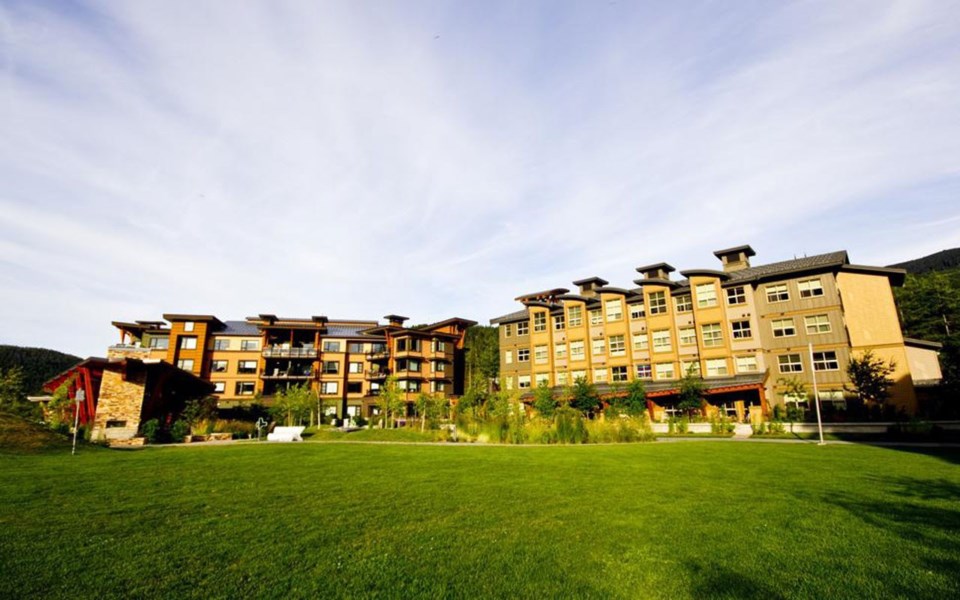Following countless hours of negotiations with the Resort Municipality of Whistler (RMOW), to say that Tony Routley was relieved to hear that council had agreed to lend $870,000 to help Cheakamus Crossing with their District Energy System (DES) costs would be an understatement.
But the neighbourhood's appointee to the volunteer DES committee knows that there are still important details of the deal that need to be ironed out.
"My first reaction is that I'm happy there's money on the table. It gives us something to work with," he said. "Is it as much as I'd like to see? No, but in a negotiation, there has to be a compromise. Will it work for us? I'm still working on that and I'm hoping it will."
At last week's council meeting, officials approved the loan from the RMOW's reserve fund to municipal subsidiary, the Whistler 2020 Development Corporation (WDC), to cover DES repair and maintenance costs for the 174 homes constructed by the WDC. The move comes after years of complaints from some Cheakamus homeowners over persistent technical issues with their ambient heating systems and thousands of dollars in repairs.
Council is requiring the funds to be distributed to the neighbourhood's five strata corporations, proportional to the number of units in each strata: $135,000 for the Heights; $300,000 for The Rise; $100,000 for Riverbend; $135,000 for The Terrace; and $200,000 for Whitewater.
Although the issues homeowners have faced vary greatly across the stratas, Mayor Nancy Wilhelm-Morden said earmarking the funds on a per-unit basis was the "fairest approach."
"If there are some (strata) corporations that haven't had as many problems as other corporations, they can keep that pool of money and set it aside for future maintenance or future issues," she said.
A significant challenge lies ahead for the stratas, which will not only be tasked with prioritizing how the funds should be distributed, but will require each homeowner to sign a legal waiver for that respective strata to receive any money.
"The bigger the strata, the harder it's going to be," said Routley. "So yeah, I think that's a huge stumbling block and that's why I have asked for a meeting with the RMOW, and I think we need to sit down and clarify some of these things."
Adding to the issue is the confusion over what costs will be eligible for compensation. Wilhelm-Morden, while noting that the RMOW won't "dictate the (funding) criteria," said that the municipality's preference would be that funds go towards future repair and maintenance costs.
"We had a lot of comments about that, whether people could submit bills that they'd already paid and get reimbursed for that. I think we would rather that not happen, that it's just from today moving forward," she said. "But I'm not sure, definitively, if we came to a decision about that, about what our recommendation would be on that, but that's something that can be discussed with the strata."
Whistler's outgoing mayor added that the RMOW's stance is that the funds should not be used to replace the DES units with an alternative heating system, either.
"I don't think that we want the funds used to take out systems—I don't believe we're recommending that as a criteria, because ultimately, we think that this system, when it's working, works very well," she said.
Routley is concerned with the amount of work that has been downloaded onto the strata corporations and the volunteer DES committee, and is hopeful the associated administrative and legal costs won't eat up too much of the funds.
"One of my worries is the administration of all this is going to cost a lot. We're going to need legal advice. All of the potential paperwork and all of the accounting could add up to a lot of money before we even get there," he said.
Wilhelm-Morden, who is not seeking re-election on Oct. 20, made it her mission to bring something concrete to Cheakamus Crossing homeowners before her term was up.
"We just really want to ... resolve this issue—for the homeowners and for us. It's dragged on for far too long," she said. "It was a problem that wasn't this council or even the previous council's making. It lies at the feet of council from years ago, and we've heard the stories from some of the owners of the despair they've had trying to get their systems to work properly and to keep working. With winter coming, there were a myriad of reasons to get this done and get this done now."




